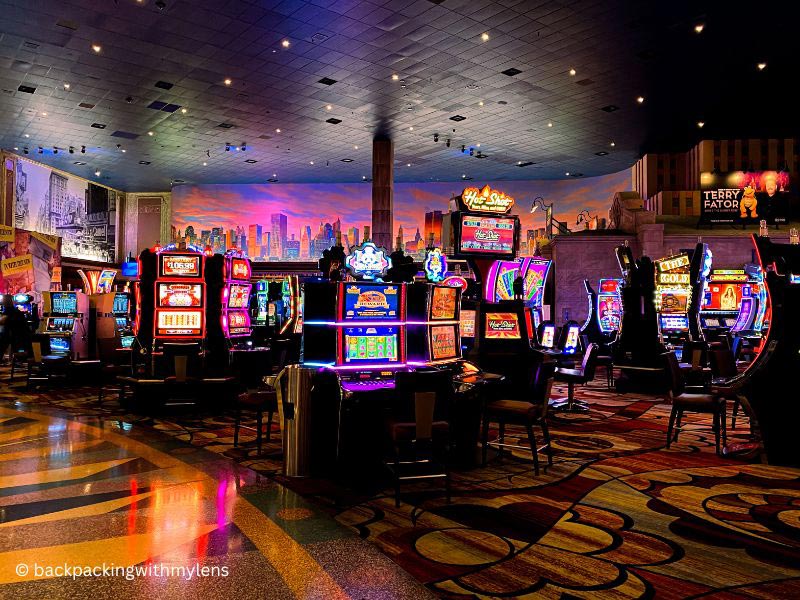
When we think of gambling games, the first pictures that often cross our minds are those of spinning roulette devices, poker tokens clinking on felt surfaces, and cubes rolling across a betting area. While many consider these games as simple hobbies fueled by chance, a deeper exploration reveals a captivating blend of strategy, expertise, and community interaction that elevates them well beyond simple luck. 77win.bar Whether you are a seasoned player or a inquisitive newcomer, understanding the subtleties of these activities can greatly enhance your experience and understanding.
Casino activities have developed over hundreds of years, with various cultures contributing to their diverse histories and variations. From the intricate strategies of 21 to the deception tactics in poker, players engage in a contest of wits as much as a risk on numbers. This exciting interplay between chance and expertise creates a thrilling atmosphere that draws millions to gambling establishments worldwide. As we explore the world of card activities, we will uncover the methods that can tilt the odds in your favor and the social elements that make these games a favored choice for leisure and engagement.
A Strategy of Table Games
Casino games often involve a blend of ability and luck, which makes them intriguing for participants who enjoy a challenge. Every game has its unique set of rules and strategies that can influence the outcome. For example, in games like blackjack, participants are required to use strategies like counting cards and understanding the odds to make smart decisions. rút tiền 77win This expertise can significantly improve the winning potential, differentiating seasoned players from beginners who may rely solely on chance.
Conversely, games such as the roulette may seem to be purely based on chance, but strategic thinking can also come into play. Players can choose between different wagering strategies, such as the Martingale system, where they raise the wagers after a loss. This approach can establish a more controlled approach to the activity. Grasping the odds of specific bets can also assist players make smarter decisions on the table, showcasing that even in games of luck, tactics can enhance the enjoyment.
Additionally, the game of poker is notable as a title that strongly focuses on tactics. Unlike most casino titles, poker combines ability, psychology, and luck. Participants must not only focus on the cards they are given but also consider their opponents actions and betting patterns. Mastering concepts like position, the odds of the pot, and interpreting bluffs is crucial for winning. This depth of strategy in the game of poker often creates to a more immersive encounter for participants, where the decisions and abilities greatly impact the game’s outcome.
Grasping Probability and Ratios
In the world of gambling games, likelihood and ratios hold a vital role in determining a player’s possible outcomes. Every activity has its own collection of guidelines that define how the probability of succeeding or losing is calculated. For example, in games like blackjack, players have a opportunity to influence their ratios through planning, whereas in matches like roulette, the outcomes are purely governed by luck. Grasping how these chances are measured can greatly affect how a player approaches the game.
Ratios are typically presented in two formats: ratio and numeric. Ratio odds indicate the proportion of the sum gained to the sum bet, whereas numeric ratios show the overall return for a winning bet, which includes the initial bet. For instance, if a game has odds of 5 to 1, this implies that for every one unit bet, a gambler could gain five dollars if they win. Learning how to interpret these odds allows players to assess their potential earnings and formulate more informed choices during gameplay.
Gamblers should also be aware of the house edge, which is the casino’s built-in benefit over the players. Each match has a distinct house edge, and understanding this concept is crucial for controlling one’s hopes and bankroll. Games with a lower house edge, such as 21 and chemin de fer, typically offer better odds for gamblers compared to games like slots and keno. By acknowledging the connection between probability, ratios, and the house edge, players can improve their gaming experience and plan more efficiently.
The Social Aspect of Table Gaming
Table games at gaming establishments are often seen as a center of community engagement, drawing participants together in a shared experience that extends far beyond the mere act of gambling. The atmosphere at a blackjack table can be electric, with gamblers engaging not only with the game itself but also with each other. Laughter, excitement, and, occasionally, playful teasing create connections that enhance the overall enjoyment of the gaming experience. This communal aspect can turn a solitary endeavor into a dynamic gathering, making table games particularly appealing.
One of the fascinating elements of table gaming is the way it cultivates camaraderie among participants. Whether it’s teaming up to beat the dealer at a craps table or sharing stories between hands in a card game, the environment encourages interaction. Players often share tips or strategies, creating a sense of togetherness that enhances the fun. This interpersonal atmosphere can make new gamblers feel included and less intimidated by the competitive nature of casino games. As the game progresses, friendships may form, leading to a sense of belonging that keeps participants coming back to the table.
Moreover, the social aspect of table gaming extends beyond just the participants. Dealers play a crucial role in facilitating interaction and maintaining the flow of the game. Their ability to engage players with friendly conversation and their expertise in managing the table can create an welcoming atmosphere. This relationship between participants and staff adds another layer of enjoyment, where players feel connected not only to one another but also to the staff. Such interactions are often what make the experience memorable, as participants leave with stories to tell and relationships made, reinforcing the notion that table games are truly about more than just chance.
